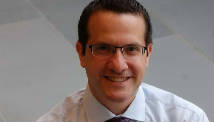The United States and the sorry state of its political and budgetary process will be the center of attention at Davos, writes Quest
STORY HIGHLIGHTS
- Quest: Davos is a chance to see where the political and economic landmines are in 2013
- Quest: People will be speculating about how dysfunctional the U.S. political process has become
- Quest: Davos has been consumed by eurozone sovereign debt crises for three years
Editor's note: Watch Quest Means Business on CNN International, 1900pm GMT weekdays. Quest Means Business is presented by CNN's foremost international business correspondent Richard Quest. Follow him on Twitter.
(CNN) -- It is that time of the year, again. Come January no sooner have the Christmas trees been taken down, as the winter sales are in full vicious flood the world of business start thinking about going to the world economic forum, better known as Davos.
For the past three years Davos has been consumed by the eurozone sovereign debt crises.
As it worsened the speculation became ever more frantic.....Will Greece leave the euro? Will the eurozone even survive? Was this all just a big German trick to run Europe? More extreme, more dramatic, more nonsense.
Can China be the biggest engine of growth for the global economy. Round and round in circles we have gone on these subjects until frankly I did wonder if there was anything else to say short of it's a horrible mess!
This year there is a new bogey man. The US and in particular the sorry state of the country's political and budgetary process will, I have little doubt, be the center of attention.
Read more: More 'cliffs' to come in new Congress
Not just because Congress fluffed its big test on the fiscal cliff, but because in doing so it created many more deadlines, any one of which could be deeply unsettling to global markets... There is the $100 billion budget cutbacks postponed for two months by the recent agreement; postponed to the end of February.
At exactly the same time as the US Treasury's ability to rob Peter to pay Paul on the debt ceiling crises comes to a head.
Read more: Both Obama, GOP set for tough talks ahead
The Treasury's "debt suspension period" is an extraordinary piece of financial chicanery that if we tried it with our credit cards would get us locked up!! Then there is the expiration of the latest continuing resolution, the authority by which congress is spending money.
There is the terrifying prospect that all these budget woes will conflate into one big political fist fight as the US faces cutbacks, default or shutdown!!
I am being alarmist. Most rational people believe that the worst sting will be taken out of this tail....not before we have all been to the edge...and back. And that is what Davos will have on its mind.
People will be speculating about how dysfunctional the US political process has become and is it broken beyond repair (if they are not asking that then they should be...)
They will be pondering which is more serious for risk...the US budget and debt crises or the Eurozone sovereign debt debacle. A classic case of between the devil and the deep blue sea.
The official topic this year is Resilient Dynamism. I have absolutely no idea what this means. None whatsoever. It is another of WEF's ersatz themes dreamt up to stimulate debate in what Martin Sorrell has beautifully terms "davosian language" In short everyone interprets it as they will.
What I will enjoy, as I do every year, is the chance to hear the global players speak and the brightest and best thinkers give us their take on the global problems the atmosphere becomes febrile as the rock-stars of finance and economics give speeches, talk on panels and give insight.
Of course comes of these musings, it never does at Davos. That's not the point. This is a chance to take stock and see where the political and economic landmines are in 2013. I like to think of Davos as the equivalent of Control/Alt/Delete. It allows us to reboot.
We leave at least having an idea of where people stand on the big issues provided you can see through the panegyrics of self congratulatory back slapping that always takes place whenever you get like minded people in one place... And this year, I predict the big issue being discussed in coffee bars, salons and fondue houses will be the United States and its budgetary woes.













